Within most countries, AI is being incorporated to improve the efficiency of various business activities, however, healthcare sector is the most revolutionizing sector created by AI. Starting from the ability to detect diseases and administer treatment methods, AI has invaded the healthcare system with reputation enhancement measures. In what ways do we harness AI for the medical field and how does it benefit the patients?
Diagnosing Diseases with Accuracy
The capability of artificial intelligence to juice many data makes it an asset when it comes to identifying diseases. This does not seek to replace physicians, but rather equip them with even better tools for making the right calls.
Personalized Treatment Plans
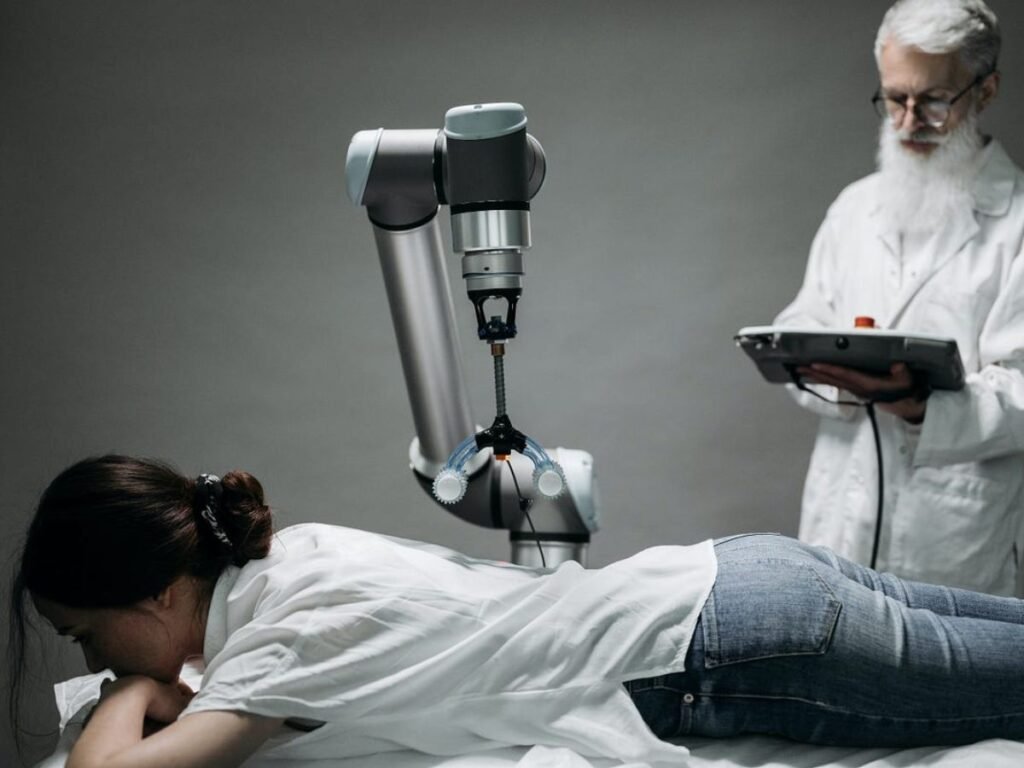
Each individual patient is different, as is his or her treatment outcome. The current trends in AI are allowing for consideration of personalized medicine through the processing of genetic data, medical history, and sociological factors. For example, it is possible for A.1. To offer cancer combatting strategies depending on the genetic structure of a patient.
Streamlining Administrative Tasks
A large proportion of time for healthcare professionals is devoted to administrative work such as scheduling and documentation. This is being alleviated by the implementation of AI in administration processes, which is automating some of these mundane activities.
AI is also being deployed in hospitals to enhance the utilization of available resources.
Revolutionizing Drug Discovery
Developing drugs takes a long time and costs a fortune. However, AI is speeding up the process by showing possible drug candidates in a small fraction of the time conventional methods take. For instance, Machine-learning models scan large amounts of data to estimate the interactions between molecules and their targets, therefore eliminating all but the best candidates.
Virtual Health Assistants
Healthcare is witnessing the incorporation of artificial intelligence in the provision of virtual health assistants. These gadgets help patients in controlling their general health through medication reminders, symptom check-ups, and emotional support. For example, apps powered by AI can take a patient through lung inhaling exercises or talk about managing stress levels.
Essentially, virtual assistants are invaluable to aging patients or the chronically ill who require constant supervision. They add value to the care experience further without eliminating the need for human interaction.
Enhancing Medical Imaging AI in Healthcare Revolutionizing the Medical World
AI in Healthcare Revolutionizing the Medical One of the fields where there has been considerable progress with AI is in medical imaging. This involves the use of various technologies such as computer vision, which interprets images such as X -rays, MRIs, and CT scans with great accuracy.

This collaboration between artificial intelligence and physicians is resulting to quick diagnosis and efficient treatment strategies.
AI in Surgery AI in Healthcare Revolutionizing the Medical World
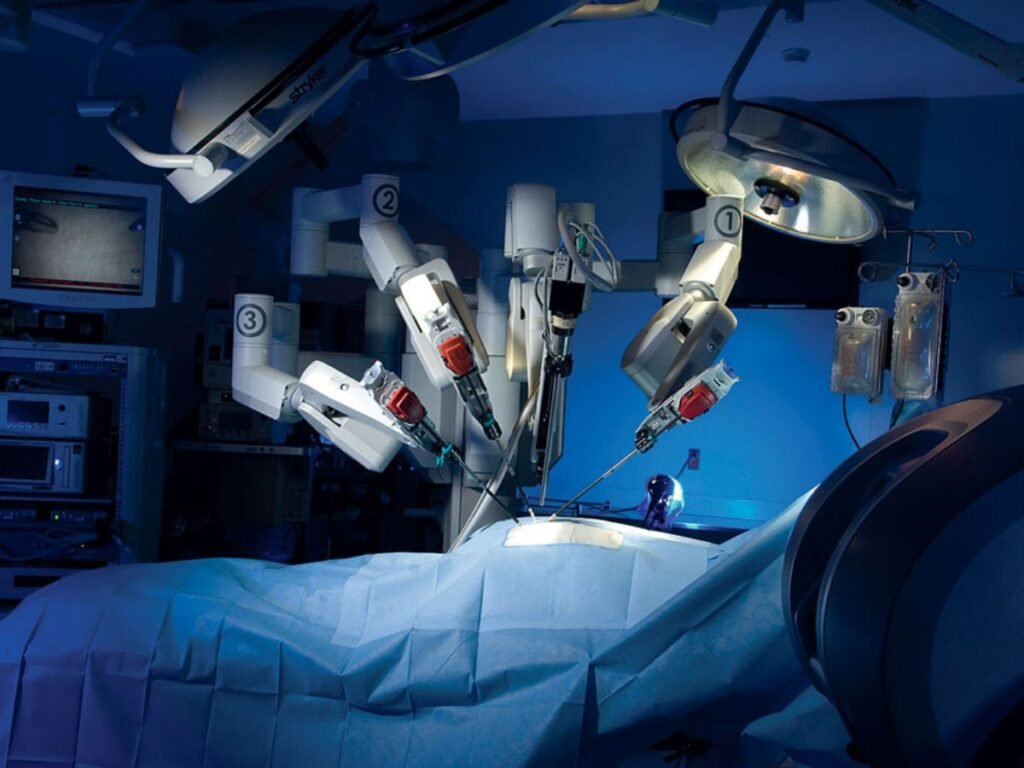
Thanks to AI, surgical interventions are becoming more accurate and minimally invasive. Robotic systems controlled by AI technology support the surgeon during complex operations, minimizing complications and enhancing results.
Such improvements are also making surgeries easier to avail. This is most useful for regions with scarce medical resources.
Tackling Mental Health Challenges
AI in Healthcare Revolutionizing the Medical Write-up application and catboats are enabling users to deal with depression, anxiety, and other mental health issues. These tools possess the ability to comprehend emotions through NLP and offer suitable responses or exercises.
The same technology is also assisting therapists in evaluating patients by processing data to find indications of mental health disorders in patients.
Predictive Analytics for Better Outcomes
Health predictions can also be made by studying the past and current data. E.g., using predictive modeling hospitals manage to segment patient’s population and predict which patients are likely to develop post-operative complications, which may lead to timely management.
Challenges in Implementing AI in Healthcare
One more problem is the introduction of AI into the already functioning health care structures. There are also time and cost constraints involved in preparing medical practitioners for the use of AI devices and modifying processes. Nevertheless, the growing dependence on technology is eliminating such concerns through the concerted efforts of technology companies, health institutions, and the government.
The Role of AI in Pandemic Management
Contact tracing, and vaccine distribution, to mention but a few, AI systems eased up the hustle in combating the virus. Predictive models were of good use in ensuring governments designed cost-effective measures. For instance, AI applications made it easy for the people to be aware of possible threats and countermeasures.
AI’s Potential in Underserved Areas
Artificial Intelligence is helping to fill this void in areas where healthcare is not easily accessible. Mobile-based AI applications are able to provide diagnostic and treatment support to the outlying areas with few or no nurses and doctors.
In addition, these solutions are efficiency enhancing and non-priced, thus bringing optimism to the healthcare issue all over the world.
Ethical Considerations in AI in Healthcare Revolutionizing the Medical World
AI in Healthcare Revolutionizing the Medical While AI is being integrated into the healthcare system, the issue of ethics arises. at decision should conform to acceptable human values, fairness and accountability for example. For instance, a diagnostic artificial intelligence tool should not be biased against one race or gender.
Clear communication is on the same level. Patients and doctors should be aware of the reasons why artificial intelligence has an opinion.
The Future of AI in Healthcare Revolutionizing the Medical World
The adventure of AI in healthcare is just starting. Sophisticated medical issues will resolve more quickly as quantum computing develops more effective AI algorithms. The incorporation of IoT and block chain technologies will improve the security and effectiveness of the use of AI applications.
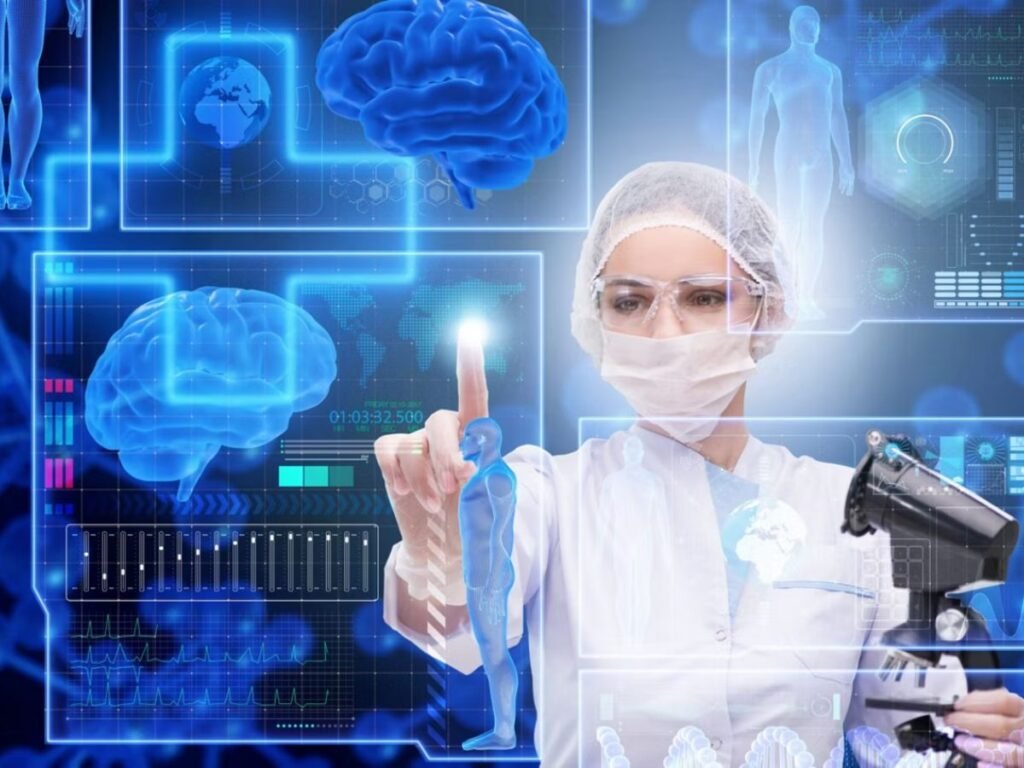
With this advancement in technology, healthcare will be much more affordable, focused on care, and preventative in nature.
AI Empowering Healthcare Professionals AI in Healthcare Revolutionizing the Medical World
Medical practitioners such as nurses and doctors are not being replaced by AI technology; AI is enhancing their capabilities. A new health care system is being developed that is both smarter and more efficient, because of the interactions between man and machine intelligence.
Conclusion: A New Era in Medicine
AI is improving in every area of medicine, from refining diagnosis to customized medicine. The secret is in embracing this technology in a very prudent way and guaranteeing that all its users stand to gain from it regardless of their geographic or economic situations.




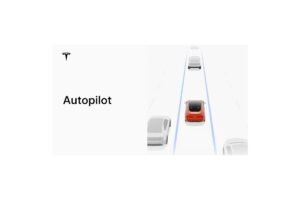







































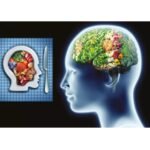









































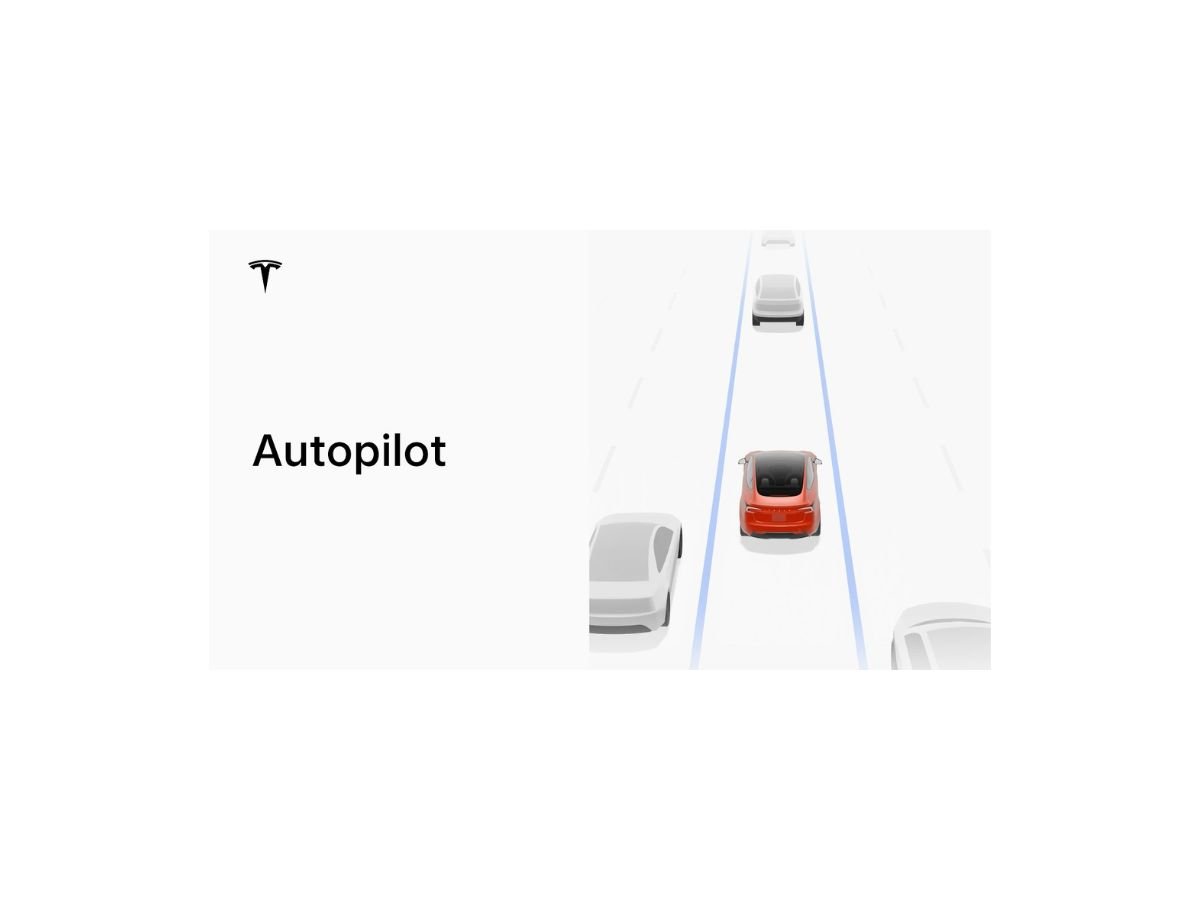
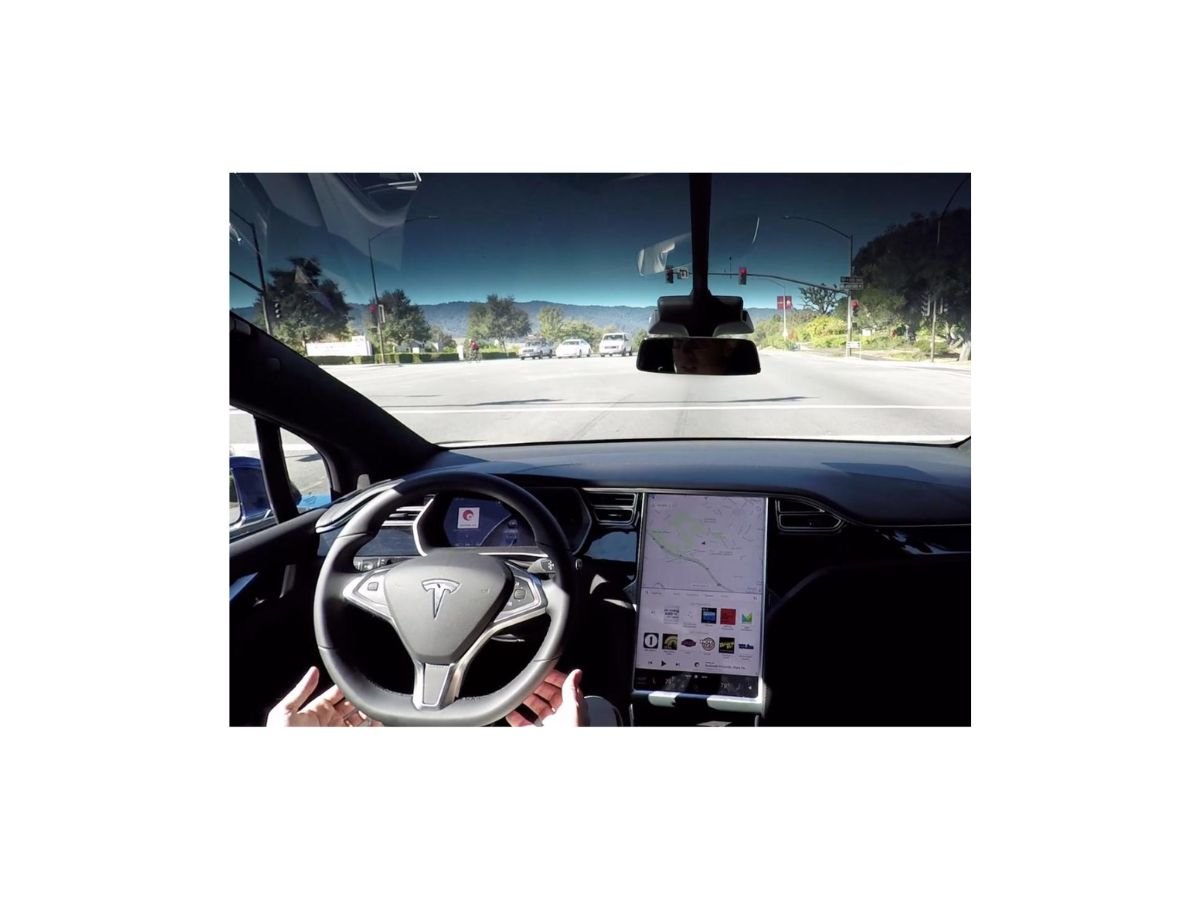


Akevler su kaçak tespiti Altunizade su kaçağı tespiti: Altunizade’de su kaçağı için profesyonel destek. https://danews.top/ustaelektrikci
cihazlı su kaçak tespiti Ekip çok hızlıydı, kısa sürede geldiler ve sorunu çözdüler. https://app.theremoteinternship.com/ustaelektrikci
su sızıntısı arıza tespiti Sultangazi’deki evime hizmet veren ekip çok hızlıydı, su kaçağını hemen tespit ettiler. https://www.debwan.com/ustaelektrikci
su sızıntısı tespiti Bahçedeki su kaçağını yer altı dinleme cihazlarıyla buldular. Peyzaja minimum zarar verdiler. İsmail N. https://www.demos-server.com/ustaelektrikci
Hey very nice blog!! Man .. Beautiful .. Amazing .. I’ll bookmark your blog and take the feeds also…I’m happy to find a lot of useful information here in the post, we need develop more strategies in this regard, thanks for sharing. . . . . .